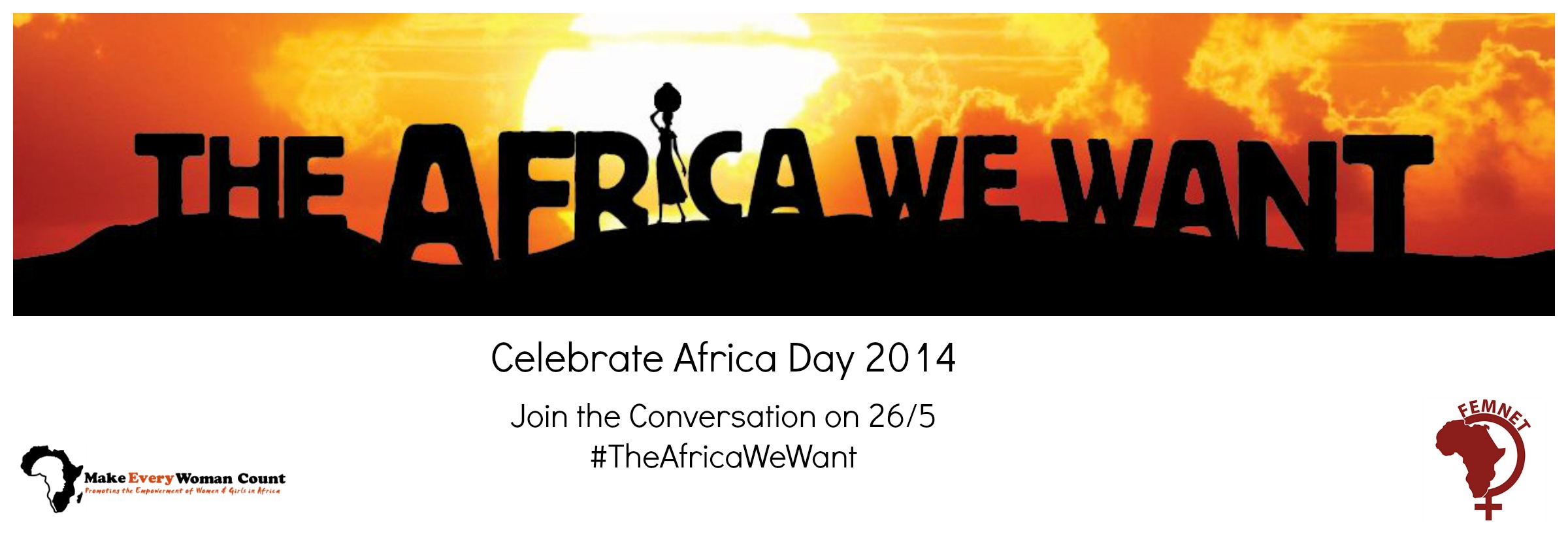Announcements
Africa Day is the annual commemoration on May 25 of the 1963 founding of the Organisation of African Unity (OAU), which was later, renamed African Union.
African women and men across the world are using the Internet to voice their opinions and call for an end to injustice everywhere.
As organizations that seek to facilitate the growing magnitude of African women voices in the online public stage, this campaign will be a medium by which African women can participate and engage in Africa Day with their full voice.
Our collaboration and solidarity is crucial to the advancement of the women's agenda in Africa and in getting women's voices to be heard and building a more sustainable future for all.
Now more than ever, we are at a time of evaluations and new initiatives. The deadline for the MDGs is fast approaching in 2015 and the African Women’s Decade has half way through. The international community met during the end of 2012 in Rio to set a new development agenda: ”The Future We Want.” So far, it is possible to conclude that the goals of the African Women’s Decade to ensure “the execution of commitments on gender equality and women’s empowerment from the grassroots, national and regional to continental level” is far from being realised. The Millennium Development Goals will only to a small degree be fulfilled. It is estimated that there will still be 920 million people living under the international poverty line, of which the majority will be women and youth. With the Common Africa Position on Post 2015 and Agenda 2063 emerging as Africa’s development priorities – what is #TheAfricaWeWant? Is it quality healthcare, is it safe spaces and schools, is it the freedom to participate in the political arena? Is it the freedom to be free from violence and oppression? The opportunity to set up a business without too much red tape? An Africa that doesn’t have to worry about illicit financial flows?
We still have a long way to go. The outcomes of Rio +20 can hardly be called a success. Even as gender issues are widely accepted as central to any and all development agendas, the governments at Rio +20 failed to recognise the centrality of reproductive rights in sustainable development. The high-level event at Rio +20, which brought together UN Women’s committees and heads of state, produced a call to action with concrete policy recommendations on integrating gender equality and women's empowerment in all sustainable development frameworks. Nonetheless, the omission of reproductive rights in this ‘call to action’ is a major step backwards.
Now is the time to take a stand. African women, African men who speak out against inequality, whose voices have largely been ignored, must be given the platform to speak, to set new goals and to get involved. No leader or policy-maker in the world can know what African women actually want, need, or even what works, if the group is denied access to the world’s microphone.
We thus invite you to join us online as we discuss #TheAfricaWeWant.
Please use the hashtag #TheAfricaWeWant #myAWD

